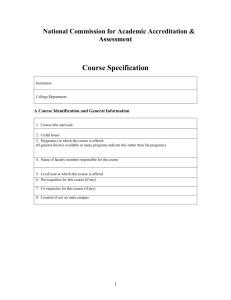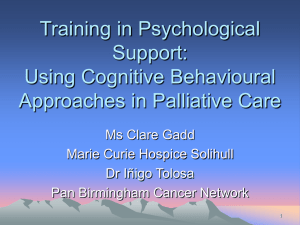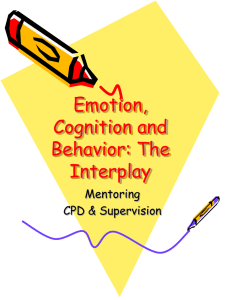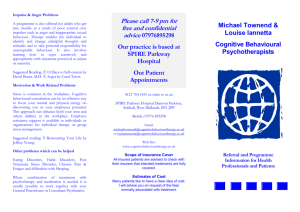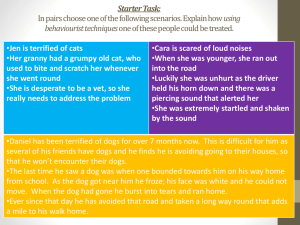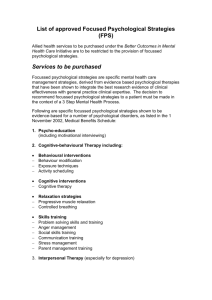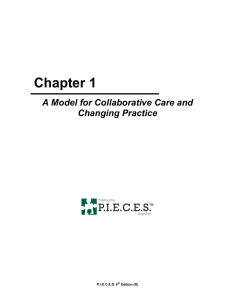Glossary of psychological therapies
advertisement
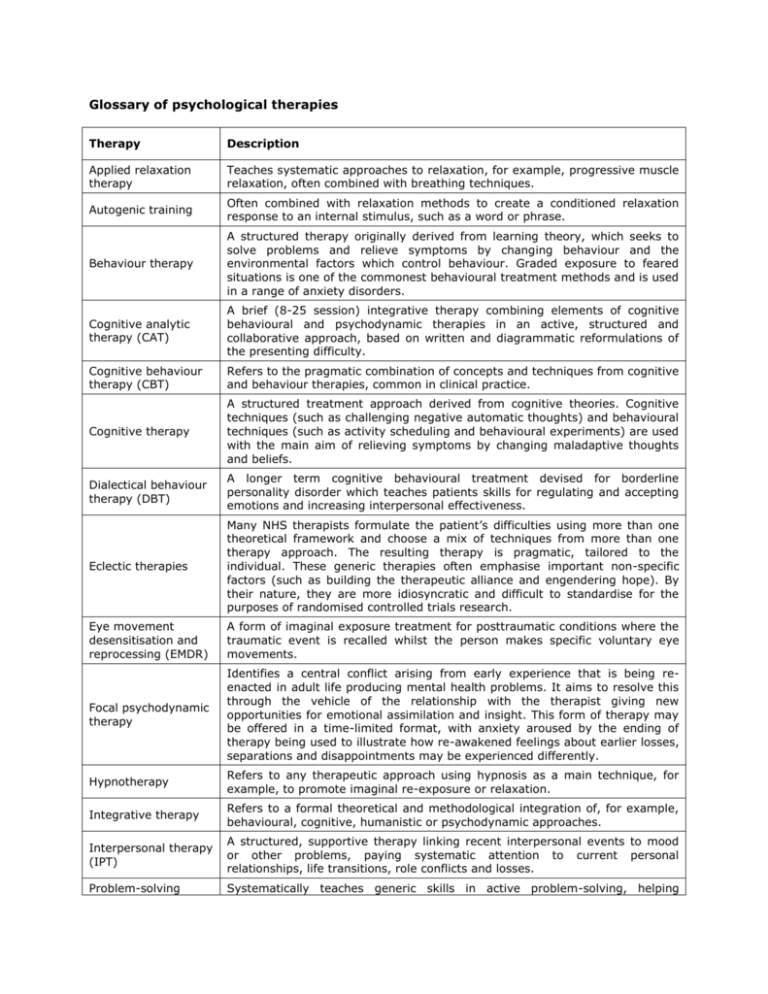
Glossary of psychological therapies Therapy Description Applied relaxation therapy Teaches systematic approaches to relaxation, for example, progressive muscle relaxation, often combined with breathing techniques. Autogenic training Often combined with relaxation methods to create a conditioned relaxation response to an internal stimulus, such as a word or phrase. Behaviour therapy A structured therapy originally derived from learning theory, which seeks to solve problems and relieve symptoms by changing behaviour and the environmental factors which control behaviour. Graded exposure to feared situations is one of the commonest behavioural treatment methods and is used in a range of anxiety disorders. Cognitive analytic therapy (CAT) A brief (8-25 session) integrative therapy combining elements of cognitive behavioural and psychodynamic therapies in an active, structured and collaborative approach, based on written and diagrammatic reformulations of the presenting difficulty. Cognitive behaviour therapy (CBT) Refers to the pragmatic combination of concepts and techniques from cognitive and behaviour therapies, common in clinical practice. Cognitive therapy A structured treatment approach derived from cognitive theories. Cognitive techniques (such as challenging negative automatic thoughts) and behavioural techniques (such as activity scheduling and behavioural experiments) are used with the main aim of relieving symptoms by changing maladaptive thoughts and beliefs. Dialectical behaviour therapy (DBT) A longer term cognitive behavioural treatment devised for borderline personality disorder which teaches patients skills for regulating and accepting emotions and increasing interpersonal effectiveness. Eclectic therapies Many NHS therapists formulate the patient’s difficulties using more than one theoretical framework and choose a mix of techniques from more than one therapy approach. The resulting therapy is pragmatic, tailored to the individual. These generic therapies often emphasise important non-specific factors (such as building the therapeutic alliance and engendering hope). By their nature, they are more idiosyncratic and difficult to standardise for the purposes of randomised controlled trials research. Eye movement desensitisation and reprocessing (EMDR) A form of imaginal exposure treatment for posttraumatic conditions where the traumatic event is recalled whilst the person makes specific voluntary eye movements. Focal psychodynamic therapy Identifies a central conflict arising from early experience that is being reenacted in adult life producing mental health problems. It aims to resolve this through the vehicle of the relationship with the therapist giving new opportunities for emotional assimilation and insight. This form of therapy may be offered in a time-limited format, with anxiety aroused by the ending of therapy being used to illustrate how re-awakened feelings about earlier losses, separations and disappointments may be experienced differently. Hypnotherapy Refers to any therapeutic approach using hypnosis as a main technique, for example, to promote imaginal re-exposure or relaxation. Integrative therapy Refers to a formal theoretical and methodological integration of, for example, behavioural, cognitive, humanistic or psychodynamic approaches. Interpersonal therapy (IPT) A structured, supportive therapy linking recent interpersonal events to mood or other problems, paying systematic attention to current personal relationships, life transitions, role conflicts and losses. Problem-solving Systematically teaches generic skills in active problem-solving, helping therapy individuals to clarify and formulate their life difficulties and apply principles of problem solving to reduce stress and enhance self-efficacy. Psychoanalytic psychotherapy A longer-term process (usually a year or more) of allowing unconscious conflicts opportunity to be re-enacted in the relationship with the therapist and, through interpretation, worked through in a developmental process. Psychoanalytically informed Psychoanalytically informed day hospital treatment is designed to help patients understand their unconscious conflicts as they are enacted in their relationships with other patients and staff in the groups and activities of the day hospital programme. Psychodynamicinterpersonal therapy Formerly known as the Conversational Model of Therapy, it assumes that symptoms and problems arise from, or are exacerbated by, disturbances of significant personal relationships. It explores feelings using cue-based responses and metaphor; links distress to specific interpersonal problems and uses the therapeutic relationship to test out solutions in the ‘here and now’. Rational emotive therapy A form of cognitive therapy that identifies underlying assumptions and patterns of thinking linked to negative unwanted emotions and challenges these. Schema-focused cognitive therapy An integrative, long-term form of cognitive therapy, which addresses the deeply held, enduring beliefs (schemas) found in personality disorders. Social skills training A form of behaviour therapy in which patients are taught skills in social and interpersonal relationships. Stress inoculation therapy A type of behaviour therapy that involves exposure to increasing levels of stress to enhance ability to cope with stress. Supportive psychotherapy Refers to any psychotherapeutic approach that supports existing ways of coping with problems rather than challenges and attempts to change ways of thinking and responding. Systemic therapy Whether treating individuals, couples or families, systemic therapy focuses on the relational context, addresses patterns of interaction and meaning, and aims to facilitate personal and interpersonal resources within a system as a whole. Therapeutic work may include consultation to wider networks such as other professionals working with the individual or the family. Therapy aims to identify and explore patterns of belief and behaviour in roles and relationships. Therapists actively intervene to enable people to decide where change would be desirable and to facilitate the process of establishing new, more fulfilling and useful patterns.




